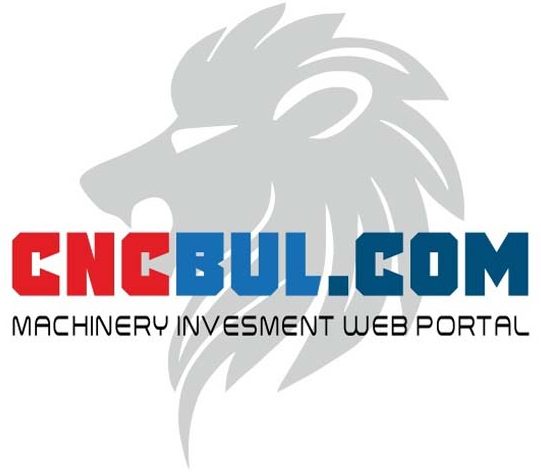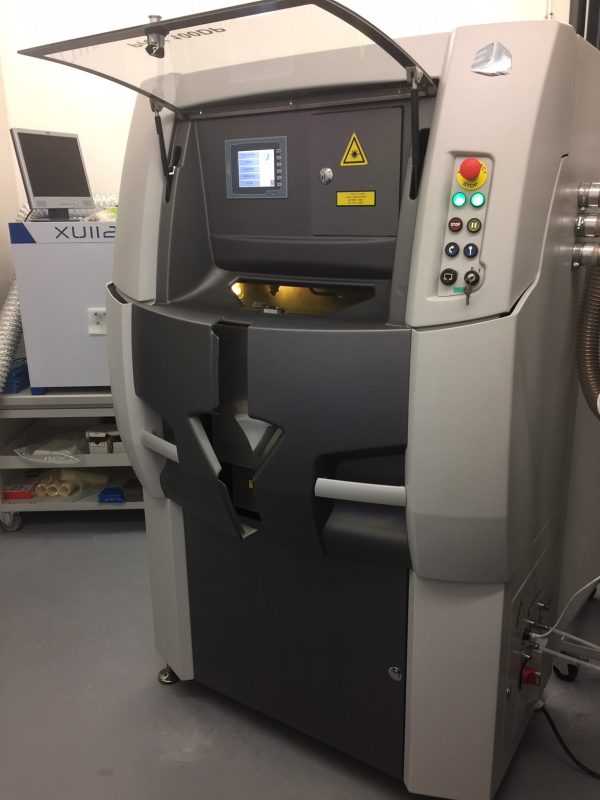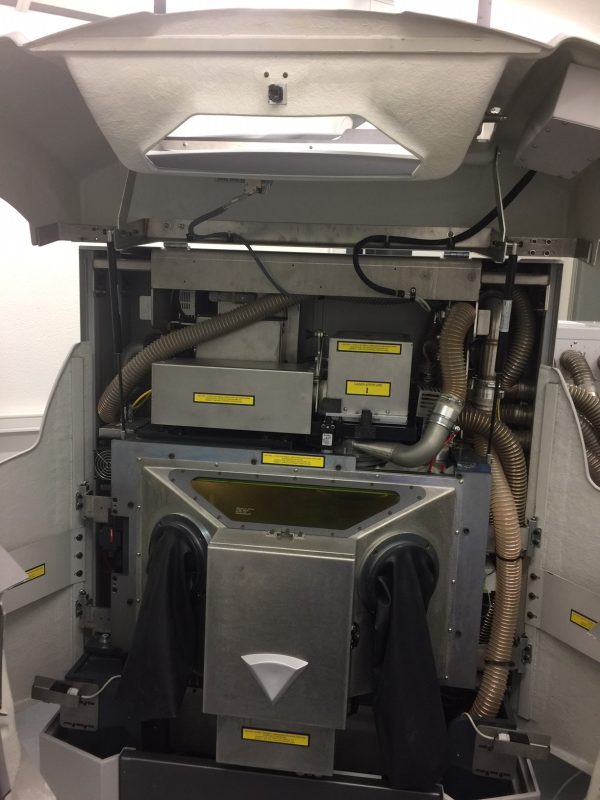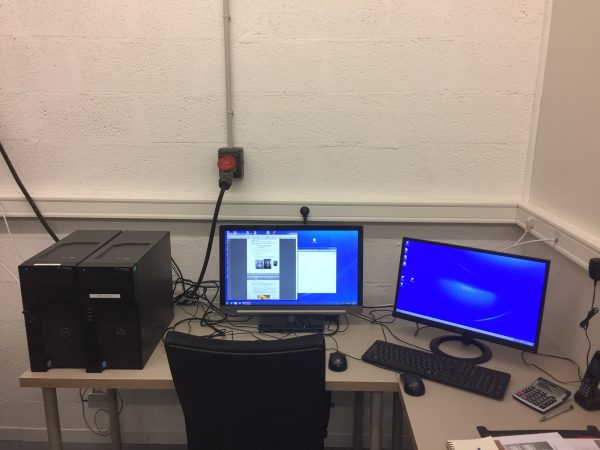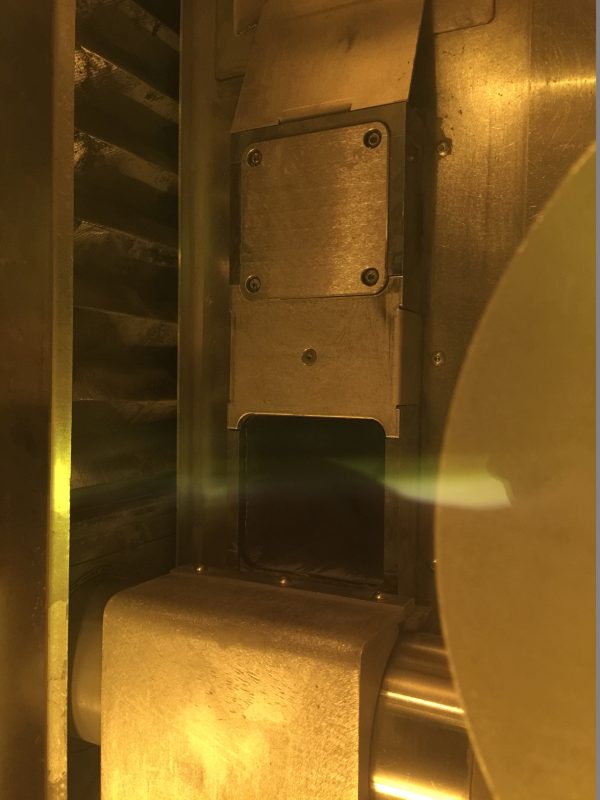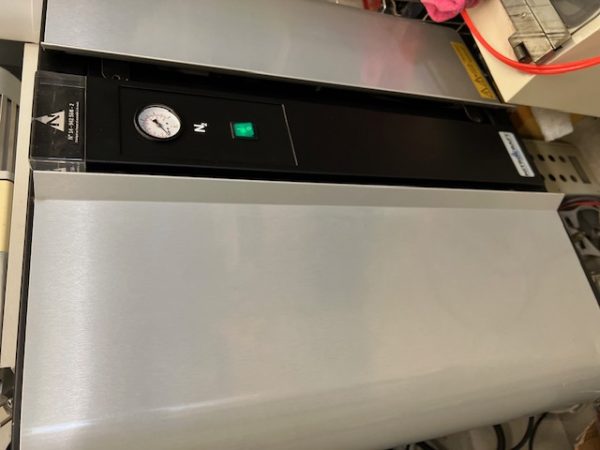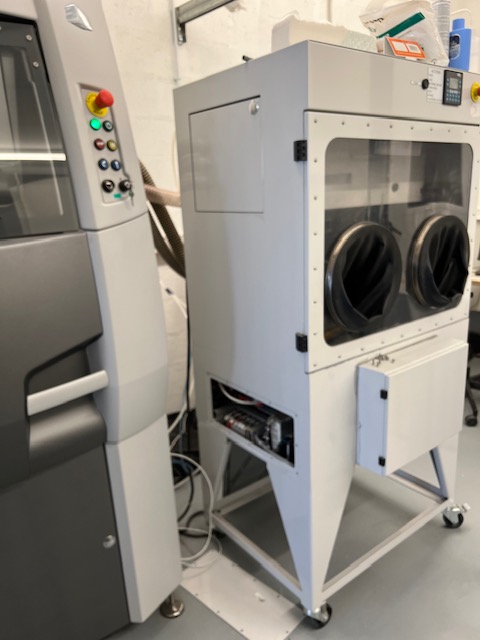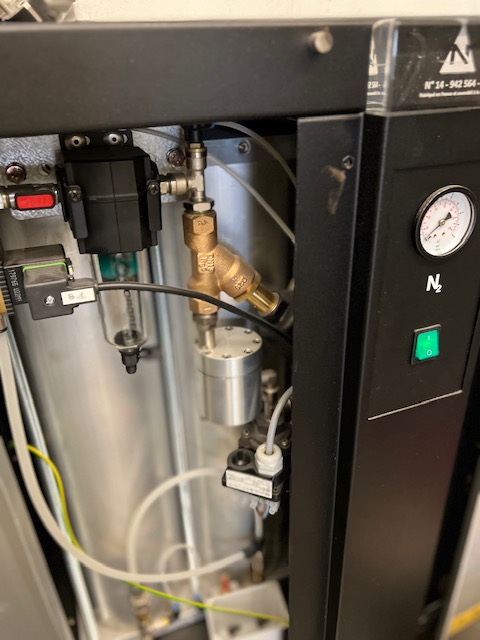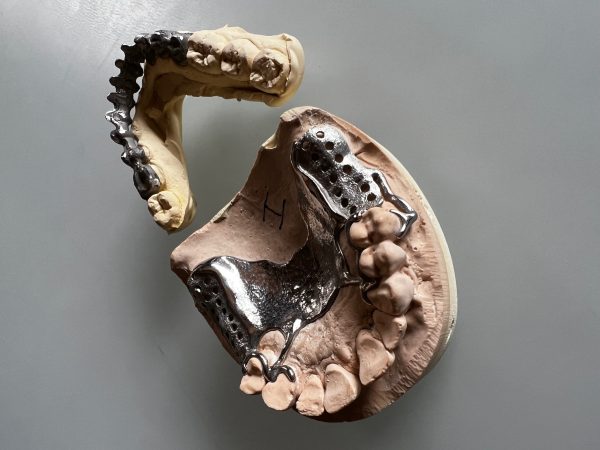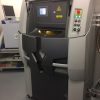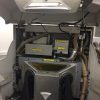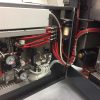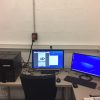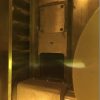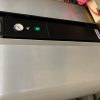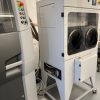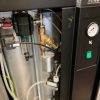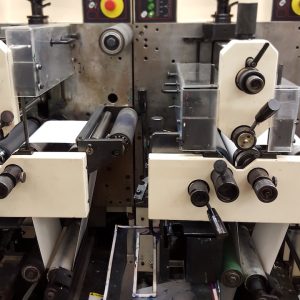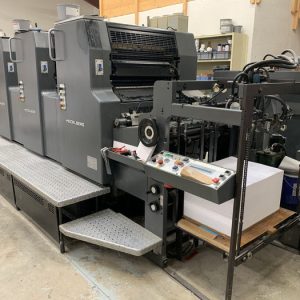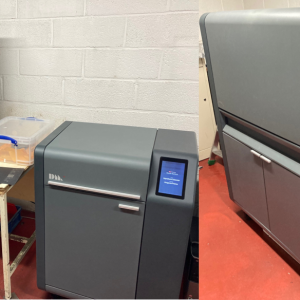Description
| 3D Systems Pro X100 DMP – Year 2015 | |
| Length x width x height | 770.0 × 1200.0 × 1950.0 |
| Weight | 1000 kg |
ProX 100 Dental: 3D PRODUCTION PRINTER
The ProX 100 dental system is a fast denture manufacturing solution that uses direct laser sintering (DMS) of metal powders that can be used directly in dental laboratories.
3D SYSTEMS is recognized for the reliability and repeatability of its laser sintering processes. Their range of ProX equipment is the result of 10 years of research and development on direct metal sintering (DMS) or 3D metal printing. The ProX 100 dental system is the smallest ProX 3D metal printing system with a print volume of 100mm x 100mm x 80mm.
The ProX 100 Dental System has been designed as the starting point for people who want to make small, high-quality, complex dental prostheses quickly using DMS technology. The loading of materials is done manually and an optional external recycling station, with materials that can be handled safely. The system uses NI-free CoCr certified materials for dental use.
Many industrial sectors already use 3D direct metal printing: custom-made dental prostheses, orthopedic implants, pneumatic molds, aerospace parts, etc. In addition, these systems are judiciously used for the direct creation of compliant tooling, wafers, blow mold production.
All DMS 3D SYSTEMS printers offer accuracy compatible with EN ISO 2768 (fine) machine tolerances and repeatability around 20 microns for each of the 3 axes. 3D SYSTEMS Direct Metal Printers produce solid metal and ceramic density parts from fine powders with a grain size of 6 to 9 microns. Materials include stainless steel, hardened steel, super alloys, non-ferrous alloys, precious metals and aluminum. This remarkable quality of output, with high precision, finish, reliability and repeatability and a choice of more than 15 materials make these first-class machines highly attractive to manufacturers.
ADVANTAGES
– Minimum waste of materials.
– Able to produce pieces that are usually not manufactured using traditional methods.
– Fast production times.
– Very dense and non-porous parts.
– Constantly high precision parts even during first production.
